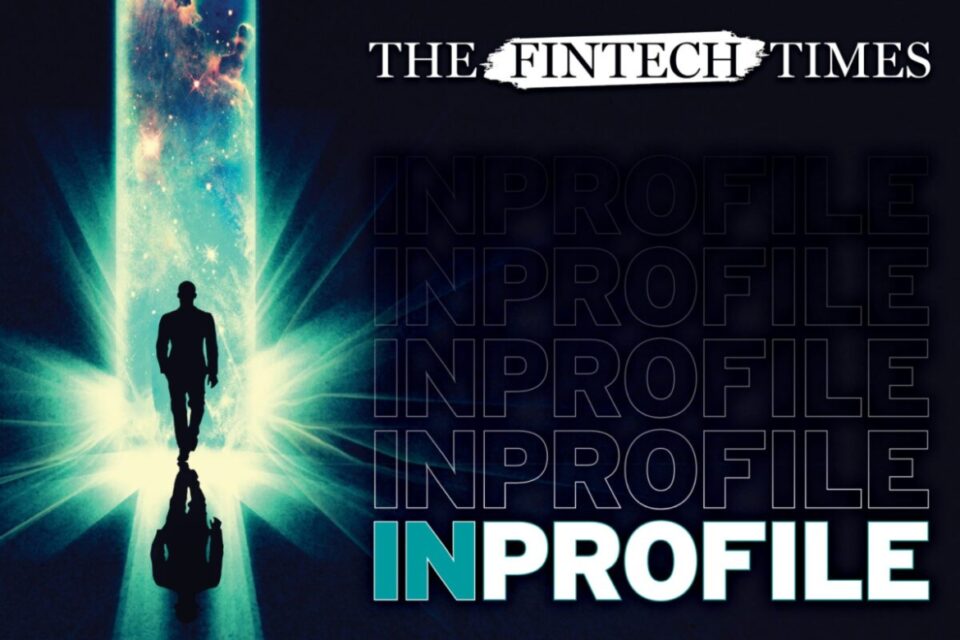Reports of subscription management’s growing popularity are in abundance, and with this, any form of technology relating to this sector must ensure the highest level of functionality.
This consensus is evidenced through the exposed failings of banks to provide adequate subscription management services, and also by the customer calls for flexible payment processes to become more frequent features in these types of services.

In this light, here The Fintech Times presents its latest In Profile feature with Revolv3, a full-stack software-as-a-service (SaaS) payment orchestration and optimisation platform for subscription billing that makes more money for online merchants with recurring billing by utilising adaptive technology.
While the company was founded in 2020 and is based in Laguna Beach, California USA, this feature meets its CEO and founder, Frank Arellano, to discuss Revolv3’s journey to fruition and the suitability of its solution within the current climate:
Tell us more about Revolv3 and its purpose
Revolv3 is a full-stack SaaS payment optimisation platform, designing bespoke subscription billing solutions for merchants. The platform utilises adaptive technology to deliver the industry’s highest credit card acceptance rates.
Revolv3’s integration enables merchants to achieve transformational revenue growth and customer retention, at the lowest cost in the industry. Revolv3 re-architected the payment process and implemented network tokens, dynamic routing and machine learning to achieve the highest first-pass approvals and overall collection rates in the market.
Companies can highly configure subscription offerings and grow their top-line revenue and scale confidently knowing that their billing platform will grow with them.
Any recent achievements you’d like to highlight?
I’m excited that we’ve been successful in raising $6.5million in venture capital and private funding, attracted an experienced management team with over 50 years of payment expertise and Fortune 100 experience, entered into a partnership with a set of companies, built seven integrations with payment processors and launched a company that is already generating great market attraction.
How did you personally get into the fintech industry?
Before founding Revolv3, some of my career highlights include serving in a key leadership role at Experian consumer services, most recently as vice president of business operations.
Prior to Experian, I worked with Ingram Micro for 17 years, lastly as senior director of corporate development and strategy. I’ve also successfully delivered turnaround of operations for 300+ B2C and B2B e-commerce sites and strategically led a multi-billion dollar acquisition integration programme, and established a global technology management office.
What’s the best thing about working in the fintech industry?
It’s a great place for a person with my experience because there’s ample opportunity to leverage both my business and technology knowledge to make a substantial impact on the market and its participants.
Not to mention as a startup, there’s plenty of potential funding looking to help fuel transformative businesses, such as Revolv3, which is great for growth and exit strategies.
What frustrates you most about the fintech industry?
Most of what frustrates me is also what motivated me to start Revolv3. As in any industry with a long history, such as the world of finance, there are lots of regulations, disparate technologies and complexities that make it hard for most businesses to understand and navigate.
If you have ever looked at a processing statement you would understand my point. Most merchants don’t know how to read or understand them. Instead, they just accept that they need to pay them without realising what they’re being charged, why and if they’re paying more than they should.
We think there needs to be more optimised and intelligent systems, more transparency, less overhead and a more efficient way of processing payments. We also saw a huge opportunity for a platform to do this, so we created Revolv3.
How have your previous roles influenced your career?
Each step in my career has led to the next and ultimately to my current position as CEO of Revolv3. First working in startups helped me understand what it takes to build a successful business from the ground up and what not to do. Then working in Fortune 500 companies I learned how big businesses operate and what it takes to really operate a large enterprise.
Along the way I was not only exposed to the various business roles but also to the payment industry in particular and how it worked and where there were gaps that could be market opportunities. Now back at a startup, I’m leveraging my contacts, tech, business and startup expertise to bring Revolv3 to market.
What’s the best mistake you’ve ever made?
There are so many to recall and one doesn’t jump out to me as the best. Early in my career, I didn’t handle mistakes as well as I should have. Most of the time I would simply ignore them and move forward quickly.
Eventually, I learned the value of reflecting on why the mistake happened and turning them into opportunities. Now, I value mistakes and leverage failures to improve our products and processes.
What has the future got in store for Revolv3?
I see Revolv3 as an industry leader in optimised and orchestrated payments. From a product perspective, the recurring billing platform, payments artificial intelligence, and payfac capabilities are core for us.
However, our strategy is to evolve the current offerings with more frontend tools, deeper third-party integrations, and embedded product offerings, providing an end-to-end payment suite. For the company, I anticipate organic and M&A growth with the possibility of exit in the five-year time frame.
What are the next key talking points or challenges for your industry as a whole?
There are a few that come to mind, in my opinion, the next key talking points would revolve around ‘one size doesn’t fit all’. As merchants grow it becomes abundantly clear that one provider does not answer all questions.
Merchants have a variety of processors (which we believe Revolv3 provides a good solution for), as well as fraud vendors, authentication requirements and workflows, bespoke to their business. Helping merchants create a solution that solves the big picture with minimal technical overhead is the biggest issue facing them in this space.
Other points include:
- Educating merchants on the end-to-end impact of payments and helping align business operations: Business reporting structures, technical implementation, and analytics needs to adapt as they educate themselves on the complete payment ecosystem. This structure may vary by merchant but should ultimately result in increased communication and KPI monitoring to provide deeper and more valuable insights across the company.
- Working to deconstruct the card present versus card not present foundation most payment risk is based on and works with issuers to accept more transactional data to make decisions. Businesses have increased the use cases where the line between card present and card not present is very grey. Working with issuers to provide more data will reduce overall risk, keep cards at the top of wallets, and build consumer and merchant trust that the industry is adapting to how commerce is conducted.
- Idea: Networks have provided an interchange discount for using network tokens, they should incentivise issuers to accept this additional data and make better decisions on risk and reduce false declines or bad approvals.




